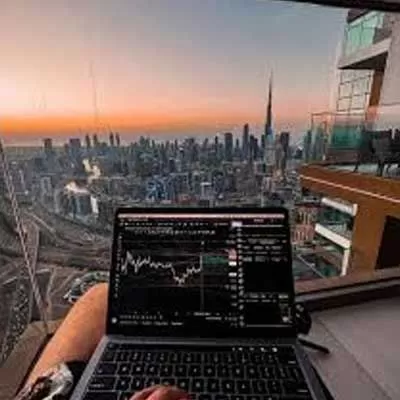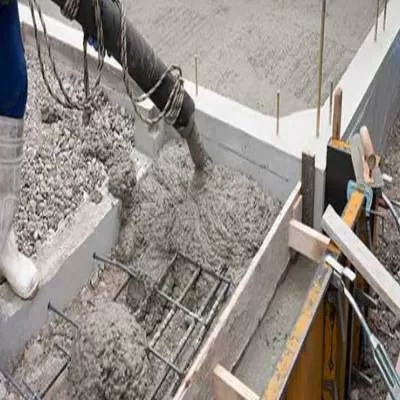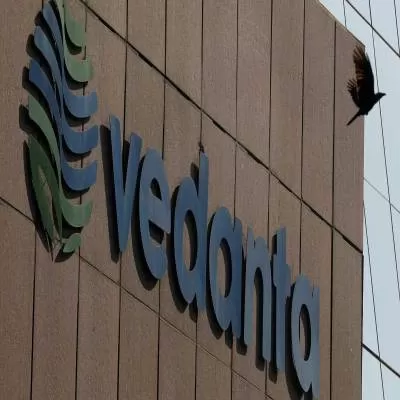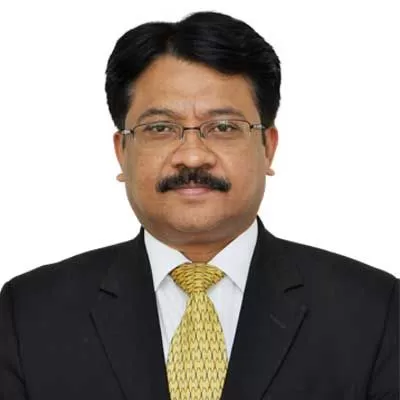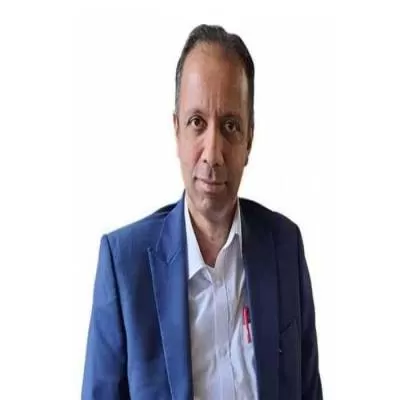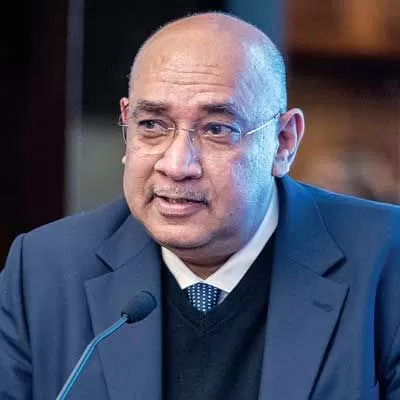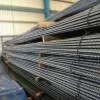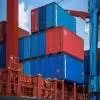- Home
- Infrastructure Urban
- ECONOMY & POLICY
- For India in Australia, it´s more of a service-driven environment

For India in Australia, it´s more of a service-driven environment
Australia-India trade ties are believed to have become closer than ever. Bilateral trade is currently at A$ 16 billion. Also, both are services superpowers. In Australia´s case, nine of 10 jobs are in services, which account for three-quarters of its GDP. As for India, with the Prime Minister´s ´Make in India´ initiative, every manufacturing plant will require financial, legal, accounting, transport, maintenance, IT, leasing, insurance, marketing, packing, storage, health and safety and probably many more services. India is looking to many Australian capabilities in such areas and for its vision of smart cities and other infrastructure development. Grayson Perry, Trade Commissioner, Australian Trade Commission, shares more on bilateral relations with special focus on smart cities, rail and roads developments in India, in conversation with SHRIYAL SETHUMADHAVAN.
What is the current nature of engagement between both countries?
A range of Australian companies are interested in offering their expertise to India´s infrastructure space. This is not just limited to smart cities, but opportunities in heavy rail and road development. In the past, we have been working hard to update Australian companies on the opportunities in India. Considering this, in January 2015, the Australian Minister for Trade led a delegation of 450 Australian companies to India, which included many companies from the infrastructure sector. Also, last month in Hyderabad, the Australian parliamentary secretary led an Australian business delegation where half the delegation included infrastructure companies. Many of these companies are also experts in areas such as urban planning, transit oriented development (TOD), and construction cost management. Also, the Indian Government´s focus on building and improving heavy rail is certainly of interest to Australian companies as we are known to be among the world leaders in heavy rail capability.
Considering the recent delegation visit, what is the infrastructure opportunity in Hyderabad?
Meetings were held with both the Andhra Pradesh and Telangana governments, and our interest was around two specific areas. One was to understand the infrastructure build around Greenfield and Brownfield cities; Andhra Pradesh is going to build the new capital. Also, the government has been looking at ways to further develop cities like Vizag and Krishnapatnam. So the aim was to see through all these opportunities and get clarity on the role that Australian companies could play in this development. Moreover, in Telangana, our aim was to understand the government´s interest in promoting infrastructure development in areas such as road safety, inland ports, and water management, and if there are any plans for further development of existing cities and business parks. We had a number of road safety related companies on the delegation because it is not just about building new infrastructure, but about changing the way people use infrastructure such as improved road behaviour and the way roads are managed and maintained to reduce fatalities and injury. Australia is a world leader in the road safety sector not only in terms of strategies, design, construction, and planning, but also in enforcement, police training and technologies and products that mitigate road accidents.
What Australian expertise and capabilities can support urban infrastructure requirements in India?
Australian companies are experts in city and town planning, master planning, integrated urban design, transport planning and looking at ways to improve existing systems, which includes road efficiency and asset management. For example, Brookfield Multiplex is an Australian company operating in India on a number of projects in alliance with Tata Projects. It´s all about bringing Australian expertise and technology to areas such as building systems to build tall towers quicker and safer, project management, site safety and workforce training. So bringing that next level of expertise and technology to the development sector in India, which willresult in more efficiency, better financial returns, improved asset management on buildings and higher levels of quality for end users. Also, whether it is a train station or metro stations, Australian companies have an interest in the Indian government's modernisation and refurbishment programme for stations across India. Australia has a lot of expertise in developing and redeveloping stations for increased usability and commercial return, and this could be another area where Australian companies could work with Indian firms to access opportunities.
Please introduce us to some Australian companies that are successfully doing business in India.
SMEC is an Australian professional services firm with a global footprint that provides high-quality consultancy services on major infrastructure projects. Also, Australia´s largest renewable energy producer and water manager, Entura, is executing projects in India. Then, companies like, Populous Design, VicRoads, Australian Road Research Board (ARRB), Global Road Technology, Urban Research and Planning, Golder Associates Consulting India Pvt Ltd and Secure Parking Downer EDI are among those who have been doing profitable business in India.
How prominent is India as a country for Australia and what is the role played by the Indian companies in Australia?
More than construction, in Australia for India, it´s more of a service-driven environment. Companies like Tata and major IT companies have service operations in Australia. Then, in the resource space, the big ones that stand are the mining sector in Australia, where companies such as Adani, GVK, Lanco,and Jindal are operating. Of course, we would be keen for more Indian infrastructure companies looking at Australia as an opportunity.
At present, what are the biggest opportunities for Indian companies in Australia?
In the short to medium term, there are big infrastructure projects that Australia will be delivering. These include major roads and highway projects, as well as projects around new master-planned communities. There are also a range of major big residential towers and hotel developments coming up. Considering the need to deliver additional infrastructure in Australia across a range of sectors, Indian firms should have a deeper look at the opportunities that exist in Australia. Austrade can assist in that process, as we have an investment team based in India, which can assist with the process.
Focusing on the key benefits, please brief us about the Australia-India Comprehensive Economic Co operation Agreement?
The Australian Government would like to get the CECA signed this year and negotiations between both countries have been well underway on this for some time. This agreement will reinforce the commitment to trade and investment between both countries and deliver tangible outcomes to the business communities of both nations. CECA will increase the level, size and quality of trade outcomes, as well as reduce hurdles and impediments to increased trade and investment between both countries.
Are there any challenges in bilateral relations that you would like to highlight?
Doing business challenges are not specific to India. It is always challenging for companies when they are entering new international markets. Issues such as different permits or licences across different state boundaries, different charging regimes, slow decision times for approvals, high import duties, etc, all add to the challenges in making a business work for an Australian company in an international market. Some efforts to ease challenges in India are visible with single window clearances being put in place in India and a more proactive environment from states to attract companies, which is great to see happening.
Is there any other expertise that Australia can lend to India?
With what India is doing in terms of infrastructure development, the country should be able to effectively implement and develop a workable financial model to make its ambitious projects happen. Australia has a lot of capability on infrastructure financing models. We have a well-developed public-private partnership in projects and another infrastructure financing models in Australia. Last year, we had a number of infrastructure financing experts come to India, to talk not only to the Indian government, but institutions who might be interested in infrastructure financing expertise. Further, we are in talks with several government agencies and organisations including the ministries of development and transport. We are also planning on signing MoUs that connect Australian and Indian partners in the smart city sector. And lastly, we are looking at delivering expertise in training in the smart cities space.
- Grayson Perry
- Australian Trade Commission
- Make in India
- Infrastructure
- Transit Oriented Development
- Brookfield Multiplex
- Tata Projects
- SMEC
- Entura
- Populous Design
- VicRoads
- Australian Road Research Board
- ARRB
- Global Road Technology
- Urban Research and Planning
- Golder Associates Consulting India Pvt Ltd
- Secure Parking Downer EDI
- Adani
- GVK
- Lanco
- Jindal
- CECA
- Grayson Perry, Trade Commissioner, Australian Trade Commission Australia-India trade ties are believed to have become closer than ever. Bilateral trade is currently at A$ 16 billion. Also, both are services superpowers. In Australia´s case, nine of 10 jobs are in services, which account for three-quarters of its GDP. As for India, with the Prime Minister´s ´Make in India´ initiative, every manufacturing plant will require financial, legal, accounting, transport, maintenance, IT, leasing, insurance, marketing, packing, storage, health and safety and probably many more services. India is looking to many Australian capabilities in such areas and for its vision of smart cities and other infrastructure development. Grayson Perry, Trade Commissioner, Australian Trade Commission, shares more on bilateral relations with special focus on smart cities, rail and roads developments in India, in conversation with SHRIYAL SETHUMADHAVAN. What is the current nature of engagement between both countries? A range of Australian companies are interested in offering their expertise to India´s infrastructure space. This is not just limited to smart cities, but opportunities in heavy rail and road development. In the past, we have been working hard to update Australian companies on the opportunities in India. Considering this, in January 2015, the Australian Minister for Trade led a delegation of 450 Australian companies to India, which included many companies from the infrastructure sector. Also, last month in Hyderabad, the Australian parliamentary secretary led an Australian business delegation where half the delegation included infrastructure companies. Many of these companies are also experts in areas such as urban planning, transit oriented development (TOD), and construction cost management. Also, the Indian Government´s focus on building and improving heavy rail is certainly of interest to Australian companies as we are known to be among the world leaders in heavy rail capability. Considering the recent delegation visit, what is the infrastructure opportunity in Hyderabad? Meetings were held with both the Andhra Pradesh and Telangana governments, and our interest was around two specific areas. One was to understand the infrastructure build around Greenfield and Brownfield cities; Andhra Pradesh is going to build the new capital. Also, the government has been looking at ways to further develop cities like Vizag and Krishnapatnam. So the aim was to see through all these opportunities and get clarity on the role that Australian companies could play in this development. Moreover, in Telangana, our aim was to understand the government´s interest in promoting infrastructure development in areas such as road safety, inland ports, and water management, and if there are any plans for further development of existing cities and business parks. We had a number of road safety related companies on the delegation because it is not just about building new infrastructure, but about changing the way people use infrastructure such as improved road behaviour and the way roads are managed and maintained to reduce fatalities and injury. Australia is a world leader in the road safety sector not only in terms of strategies, design, construction, and planning, but also in enforcement, police training and technologies and products that mitigate road accidents. What Australian expertise and capabilities can support urban infrastructure requirements in India? Australian companies are experts in city and town planning, master planning, integrated urban design, transport planning and looking at ways to improve existing systems, which includes road efficiency and asset management. For example, Brookfield Multiplex is an Australian company operating in India on a number of projects in alliance with Tata Projects. It´s all about bringing Australian expertise and technology to areas such as building systems to build tall towers quicker and safer, project management, site safety and workforce training. So bringing that next level of expertise and technology to the development sector in India, which willresult in more efficiency, better financial returns, improved asset management on buildings and higher levels of quality for end users. Also, whether it is a train station or metro stations, Australian companies have an interest in the Indian government's modernisation and refurbishment programme for stations across India. Australia has a lot of expertise in developing and redeveloping stations for increased usability and commercial return, and this could be another area where Australian companies could work with Indian firms to access opportunities. Please introduce us to some Australian companies that are successfully doing business in India. SMEC is an Australian professional services firm with a global footprint that provides high-quality consultancy services on major infrastructure projects. Also, Australia´s largest renewable energy producer and water manager, Entura, is executing projects in India. Then, companies like, Populous Design, VicRoads, Australian Road Research Board (ARRB), Global Road Technology, Urban Research and Planning, Golder Associates Consulting India Pvt Ltd and Secure Parking Downer EDI are among those who have been doing profitable business in India. How prominent is India as a country for Australia and what is the role played by the Indian companies in Australia? More than construction, in Australia for India, it´s more of a service-driven environment. Companies like Tata and major IT companies have service operations in Australia. Then, in the resource space, the big ones that stand are the mining sector in Australia, where companies such as Adani, GVK, Lanco,and Jindal are operating. Of course, we would be keen for more Indian infrastructure companies looking at Australia as an opportunity. At present, what are the biggest opportunities for Indian companies in Australia? In the short to medium term, there are big infrastructure projects that Australia will be delivering. These include major roads and highway projects, as well as projects around new master-planned communities. There are also a range of major big residential towers and hotel developments coming up. Considering the need to deliver additional infrastructure in Australia across a range of sectors, Indian firms should have a deeper look at the opportunities that exist in Australia. Austrade can assist in that process, as we have an investment team based in India, which can assist with the process. Focusing on the key benefits, please brief us about the Australia-India Comprehensive Economic Co operation Agreement? The Australian Government would like to get the CECA signed this year and negotiations between both countries have been well underway on this for some time. This agreement will reinforce the commitment to trade and investment between both countries and deliver tangible outcomes to the business communities of both nations. CECA will increase the level, size and quality of trade outcomes, as well as reduce hurdles and impediments to increased trade and investment between both countries. Are there any challenges in bilateral relations that you would like to highlight? Doing business challenges are not specific to India. It is always challenging for companies when they are entering new international markets. Issues such as different permits or licences across different state boundaries, different charging regimes, slow decision times for approvals, high import duties, etc, all add to the challenges in making a business work for an Australian company in an international market. Some efforts to ease challenges in India are visible with single window clearances being put in place in India and a more proactive environment from states to attract companies, which is great to see happening. Is there any other expertise that Australia can lend to India? With what India is doing in terms of infrastructure development, the country should be able to effectively implement and develop a workable financial model to make its ambitious projects happen. Australia has a lot of capability on infrastructure financing models. We have a well-developed public-private partnership in projects and another infrastructure financing models in Australia. Last year, we had a number of infrastructure financing experts come to India, to talk not only to the Indian government, but institutions who might be interested in infrastructure financing expertise. Further, we are in talks with several government agencies and organisations including the ministries of development and transport. We are also planning on signing MoUs that connect Australian and Indian partners in the smart city sector. And lastly, we are looking at delivering expertise in training in the smart cities space.


